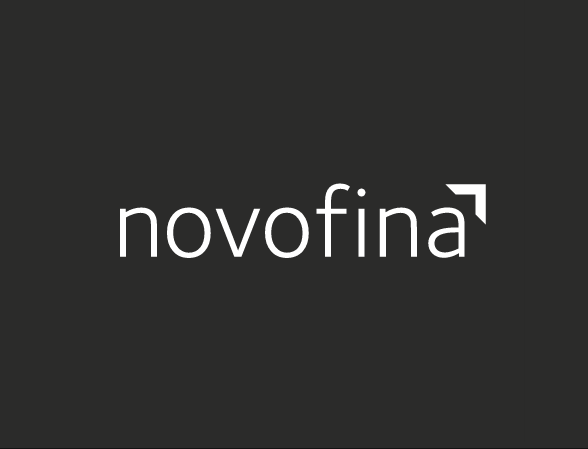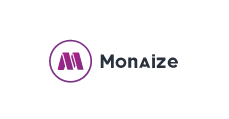Novofina is a fintech company which offers investors the use of their proprietary trading systems.
Harald Helnwein CEO at Novofina explained in great detail what his company does and why they do it. I have appreciated the open and honest answers to our questions.
As always this interview should be the start of your due diligence, make sure to understand all the characteristics and risks of an investment.
Can you briefly describe the products being offered by Novofina.com?
From a clients’ perspective, it is like his/her personalised high-tech hedged funds, i.e. a so-called managed account. Advantages: Client remains in full control of his money and entered stocks belong to each client individually (not Novofina) = less, or almost no capital risk!
We, as a fully licensed asset manager, enter and exit (stock) positions for our client fully automated but monitored by our trading managers: State-of-the-art algos (including modern AI with the expertise of 30 years real live trading).
The client does not need to do anything but he/she can: For example select the product or a mix. Or if uncertain about the markets, reduce the exposure (money in positions) to 0% or 30%. But, we are a fully licensed asset manager (not just a broker or hedge fund), and so we talk with people if they prefer and we can advise about risk and performance expectancy in detail.
In addition to your two products Novo fina 7plus and Novo fina 20plus you have a “personalised investment product”, can you tell us more about this?
We have a lot of expertise and a lot of strategies. Note: even 7plus and 20plus are already a combination of (sub-) strategies, and the positions sizing, the money management, and the number of (sub-) strategies at a product very with the amount on the client’s account to maximise his/her outcome and to reduce risk to the minimum!
For clients with certain goals, for example, pension funds or family trusts, they aim at e.g. very low risk so we can tailor-made and mix the (sub-) strategies differently; but we also have more dynamic oriented clients, who for example could only trade one single (sub-) strategy and even leverage this (e.g. this means to have GBP 100,000 on the account but trade a value of GBP 150,000).
Do your products have a specific risk factor?
We do not “use” most of the commonly used ones like Sharpe Ratio or Value At Risk as many of those have flaws when you look at them closer. We do real-world related stress testing to find objective criteria to manage risk and trade clients’ money as well as our own money – that we trade with the exact same algos exactly as we trade clients’ money – only after robustness analysis combined with real world experience of millions of trades we have done over many years with our trading algos before we founded Novofina. As some call me a system trading expert they also use the term “Helnwein Factor” for the good old MAR Ratio, not because I have invented it (which I dod not) but as a great benchmark when developing real working algos: you put the average annual performance in relation to the single worst drawdown in all the years; this should be around 1 or better.
How do your systems perform in bull and bear markets?
We know that no one has a crystal ball, certainly, we don’t. So what we do is to use strategies that did good or survived without to big drawdowns up, down and side-ways markets! And we do not buy and hold a single stock for long which can be nice if you bought Apple 10 years ago but not so good if you invested in an every declining stock. We only go for 53 to 56% win rate (plus slightly higher net winners than losers, on average) and we repeat that often: it is like being the casino with the green zero on your side (and no longer the player in a casino who will, on average, certainly lose as the probabilities are against him/her).
Does the algorithm make money both on both the way up and down?
Yes, but also drawdowns can take place then. This is sometimes tough for newer clients: The stock markets seem to go up and up, and a countertrend algo does not! But we are not here to make 5% for our clients when the FTSE went up 10% – this they could do on their own. We want to produce nice returns no matter what. This means, you can make nice gains the first year, but this cannot be guaranteed at all.
Does the decision-making part of the investment system rely on human intervention or is it solely controlled by computer algorithms?
I did my first stock trading over 30 years ago and evolved from discretionary trading to mixing my investment experience with algos (systems) to end up seeing that modern times are too fast and too professional to make money long-term by guessing or interfering. For some this is a religion, for me, it is not: I do what is best for managing risk and make good money based on reproducible facts. Most trading system critics never tried it themselves or failed. For any failed system trader that I know I know, 100 discretionary traders and investors that failed.
What we do is we watch everything closely. On certain, clearly defined news (like the CFO went away with all the money of company XYZ) we would not trade it even If there is a signal. We also check the trading executions.
The algorithm invests only in blue chip companies; does this include options for those blue chip companies?
Novofina 7plus and 20plus only trade stocks listed on NYSE or NASADA of highly market capitalised stocks with proper daily volume. This is a very important part for those products (strategies) as this give the highest security to client’s money and net outcome for the client (much lower fees for them, no spreads, no artificial prices). And there is no need to have a USD account. British clients keep a pound sterling account and Germans theirs in Euro.
What is the main advantage of active investing over passive investing?
I believe I may have mentioned already some points above. I could argue for days why we do what we do. But the most important thing why we do what we do is as we think we are always in control of our risk and of our hard earned money. In reality – as we can close out every position at any second as it was only meant to either gain or loss a lower amount – but also psychological. I have so many investors suffering when they bought that super stock everyone bought just to watch it going down and down year in year out. Or in real estate, where we when something crashes we just can’t get out. And I had lived in the US when the housing bubble collapsed (and I had not a single investment there). But sometimes one just knows and finds a good investment. I am happy with that. I don’t care how people make money, I hate it when they lose it.

Do you see the role of ETFs evolve as market behaviour is changing from historical trends?
What a great point of you! Absolutely! There was always change what dives the market and how it then “behaves”. That is why we keep working like crazy on our excellent algos, even if it means months on a single filter that we then dismiss to implement. ETFs change the stock market tremendously. Was it HFT that messes up a lot (most to the negative), ETFs are the next big thing – no matter if you buy them or the underlying stocks, the interdependency grows every day.
Also, look at regular robo-advisors (not Novofina who has its own products trading stocks directly and efficiently): most just match an online entered personal profile just to sell you a bundle of ETFs then.
But ETFs are not bad as such (or not yet ;-)) and most of the time way better than commission
Do all European have access to this investment?
We can take on any nationality from all over the world and we are extremely well regulated as Novofina: Our EU-wide license has been passported to the UK (so you find as at the FCA), Ireland, Germany, Austria, which means we can do some active advertising as well. So far we haven’t done any and already trade millions of clients money every day, not bad, I guess.
There are a few black listed countries. Only those are excluded.
So far I select which country we are actively going to. And to be honest, it are those I like the most. Maybe not a smart thing to say as the CEO and founder but I have founded Novofina to make really good finance high-tech available to everyone, and this in a new, a clean, inexpensive and fully transparent way. As I like the UK and love London (all non-Londoners may excuse that I just said that) and as it is still, for now, the pulsating financial centre in Europe, we came here. Honestly, the Brexit was a little downer for us – not business wise as I know that people here are super smart when it comes to their money and enough will like what we do, but I felt, hey, my British friends don’t like us (the “other Europeans”) anymore. But this is not true; my friends still invite me to fish and chips (best food ever) with one or more pints of beer.
During the lifetime of the investment, what % of the capital invested will investors pay as management fees?
Zero, none! We trade for our client’s and every trade on a stock exchange costs something. Also with us, there is where we get our part. But hold on, we only charge USD 0.015 per share or a minimum of USD 2.00 per entry or exit. Please go ahead and compare that with British brokerages, most of them would charge you more for every trade – that you would need to do on your own without any Novofina trading algo or Novofina optimised order executions.
Low cost are equally important for the net outcome of the client! Our ambitious performance goals would not be possible if we would charge what others charge.
What is the timeline do you expect your products to achieve the proposed investment returns?
I and many of my clients made very good money over the last 10 and 15 years that we trade algorithms; this btw is why Novofina shareholders are long-term clients of mine. When I told them that I want to change the financial world to one that does more for their clients than for themselves they all jumped on board immediately. I believe they wouldn’t have done that when they were unhappy. But yes, there will be periods of drawdowns. This is important to understand. I would invest in Novofina if I would want to see what is going to happen in the next three or five years. I believe you would not want to leave then either 😉
In your opinion, on an individual level what does it take to personally to be successful in today’s fast-paced world?
Working your ass off, sorry to say it that way. You can’t stop learning (see my HFT remarks and your ETF point above) and you have to become professional. I know many, many active investors and traders. I saw many of them fail (that breaks my heart and was one of the main drivers to found Novofina). Many of them tried for 10 or 15 years before they gave up or then really learned and keep on doing this. Even for our firm here at Novofina. I believe we have trading systems that are better than 99% of the things you would find elsewhere. But if we do not improve and work on it day and night, it would drop like crazy.
As a Fintech firm what is the key to make complex products easy for prospective clients to understand?
You asked the wrong person! I am the worst to explain what we do. Stick me in a room and lock the door for two days. Most people would come out an be system traders or investors just be understanding what unquantifiable risk they entered in the past.
Why we get so many clients is, I guess, because even if they don’t understand what we or I am trying to tell them, they see that we are honest, that we want them to make money not us, and that we are really working har for them. This may sound strange and not FinTech or WealthTech hype like, but a lot of FinTech startups don’t understand that people don’t care about the tech part, it is “just” a prerequisite. People want to be treated fair, even from the financial service industry.
Visit Novofina.com, to discover more of their investment ideas.












